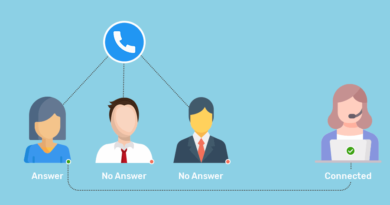Improve Your Emotional Intelligence For Better Relationships
Do you ever struggle to manage your emotions during difficult conversations? Do you find it hard to maintain meaningful relationships because you feel overwhelmed by your own emotions? If so, you are not alone. Many people have difficulty understanding and managing their emotions, which can lead to difficulty in their relationships. In this blog post, we will look at how you can improve your emotional intelligence for better relationships. We will discuss topics such as discovering your emotional triggers, developing empathy and compassion, and managing your emotions in stressful situations. With these tips and tricks, you will be on your way to having healthier, more meaningful relationships.
Discovering Your Emotional Triggers
Emotional intelligence (EI) is the ability to be aware of and understand your emotions and to use this information to manage them effectively. When you have a strong EI, you are better equipped to handle difficult situations and relationships. Below, we will outline the different ways that EI can help you in your personal life.
First and foremost, having strong emotional intelligence allows you to recognize your emotions and make sense of them. When you know what’s going on inside of you, it’s easier to respond calmly and thoughtfully instead of reacting impulsively or emotionally out of control. Additionally, when you have strong emotional intelligence, it becomes easier for you to understand the needs of those around you. You won’t be as caught off guard by their actions or reactions, which will improve your interactions significantly.
Another key benefit of having strong emotional intelligence is that it allows you to take responsibility for your feelings. When everything is happening in an instant – like when a difficult situation arises – it can be hard to know where to start or who should take control. However, when you have strong emotional intelligence, you are able to identify the problem and take action based on what’s best for you rather than letting emotions get the best of you.
Last but not least, practicing self-compassion and understanding empathy goes a long way in preventing unhealthy relationships from developing in the first place. By recognizing that everyone experiences emotions differently – no matter how similar they may seem on the surface –you can develop healthy boundaries that protect both yourself and those around you. In addition, being empathetic means being understanding towards another person even if they don’t share similar experiences or feelings as yours.
Developing Empathy And Compassion
Emotions are one of the most important factors in human interactions. They drive both our thoughts and our actions, and they play a big role in our relationships. By understanding and managing our emotions, we can create stronger connections with others and build better relationships. Below, we’ll outline the steps that you need to take in order to develop empathy and compassion.
The first step is recognizing and managing your own emotions. When we’re emotional, it’s tough to think straight, so it’s important to be able to identify when you’re feeling off balance. Use these tips to help you track your emotions:
- Keep a journal where you can record your thoughts and feelings about events throughout the day
- Use emoticons or other symbols (such as parentheses) to represent different emotions that you feel
- Experiment with different methods of recording your thoughts so that you can track your progress over time.
The next step is understanding the emotions of others. This may seem like a difficult task at first, but by practicing active listening, it will become easier over time:
- Make an effort to pay attention when someone is talking – even if you don’t understand everything that they’re saying at first – Don’t interrupt or try to fix what the person is saying – let them continue uninterrupted if they want to talk about something sensitive
- Ask clarifying questions after they’ve finished speaking – this will help you understand their point better
- Respond emotionally – rather than taking things Personally – Recognize that everyone experiences emotions differently, so what might be seen as negative by one person might not be seen as such by another.
Managing Your Emotions In Stressful Situations
Emotional intelligence (EI) is the ability to be aware of and understand your own emotions, and the emotions of others. In stressful situations, it’s important to have a healthy emotional response in order to cope effectively. By understanding key EI concepts and principles, you can better manage your emotions in challenging situations.
Below, we will outline the key elements of emotional intelligence: self-awareness, self-regulation, communication, motivation and goal setting, problem solving, stress management techniques, and relationships. We will also provide examples of how these skills can be applied in various contexts – from work to personal relationships – so that you can improve your overall emotional well-being.
First and foremost, it’s important to understand that everyone has different emotional intelligence levels. Some people are naturally more sensitive than others when it comes to their emotions. However, there are steps that everyone can take to increase their emotional intelligence level no matter what level they are at currently. By understanding the concepts behind EI and applying them to your daily life, you can start building stronger relationships with those around you and better manage difficult situations.
Self-awareness is the first step on the road to improved emotional intelligence. Simply put, self-awareness means being aware of who you are as a person – both emotionally and intellectually – at all times. When you’re aware of your own thoughts and feelings at all times, it becomes much easier for you to manage difficult situations successfully.
Next on our list is self-regulation: the ability to control how severely or intensely your emotions react in certain situations. Self-regulation is essential for optimal coping when faced with stressors or challenging circumstances. It allows us to maintain composure under pressure while still managing our feelings appropriately. Practice good self-regulation by being patient with yourself; give yourself time before reacting emotionally impulsively in a situation where controlled reactions would be more beneficial overall (like during an interview).
Effective communication is another key factor for managing stress effectively. When communicating with others, be clear about what you want or need from them, avoid using vague or ambiguous language, listen attentively without interrupting, and respond positively. Remember: everyone communicates differently! Don’t assume that because someone speaks softly or slowly they don’t mean anything; instead, ask clarifying questions if needed. And finally: keep a positive attitude! It will help reduce tension throughout any interactions, no matter how stressful they may seem at times.
Understanding Your Feelings To Improve Your Relationships
There’s no one-size-fits-all relationship advice, but understanding your emotions and how they impact your relationships is an important part of improving them. Emotional intelligence (EI) is the ability to be aware and understand your feelings, emotions, and motivations. This can help you to better manage relationships by recognizing when something is wrong and by being able to empathize with the feelings of others.
There are three key components to emotional intelligence: self-awareness, empathy, and understanding. Self-awareness means being aware of your own feelings and behaviors. For example, you should be able to identify when you’re feeling overwhelmed or stressed out. Empathy allows you to understand the feelings of others by putting yourself in their shoes. You should be able to understand why someone might feel a certain way without needing them to explain it to you directly. Finally, understanding means being able to see things from a different perspective – perhaps seeing events or situations from a different point of view than the person who is experiencing them. This can help you better understand why someone might do something or think something, rather than just accepting what they say at face value.
It’s important to remember that emotional intelligence isn’t just about knowing how we feel – it’s also about knowing how others feel. By being emotionally intelligent, we can better manage our own emotions as well as those of others in our lives. Here are some tips for developing emotional intelligence in relationships:.
- Be Aware: Start by becoming aware of your own emotions and how they impact your relationship dynamics. Become familiar with the signs that indicate something is wrong – for example, when you start feeling overwhelmed or angry frequently – so that you can address it before it becomes an issue in your relationship.
- Recognize Emotions: Once you’ve become aware of your own emotions, it’s time to recognize those of others around you! Learn which emotions are common in specific situations and learn how best to express those feelings without hurting anyone else’s feelings (for example, crying during a movie rather than sitting quietly).
- Understand Motives: It’s not enough just to know what someone is saying; you need to know why they’re saying it and what it means for them. (This is where emotional intelligence comes into play.) Rather than just accepting what somebody tells you without questions (or judging them), try asking questions that will allow you to understand the implications of their words. (For instance, why do you think this happened?)
All In All
Improving our emotional intelligence is an important skill to have in order to foster meaningful relationships. By recognizing our emotional triggers, developing empathy and compassion, and managing our emotions in stressful situations, we can create healthier relationships with those around us. With these tips in mind, you can start taking steps towards a more balanced life today! So, take some time to reflect on your emotions and work on improving your emotional intelligence for better relationships.



